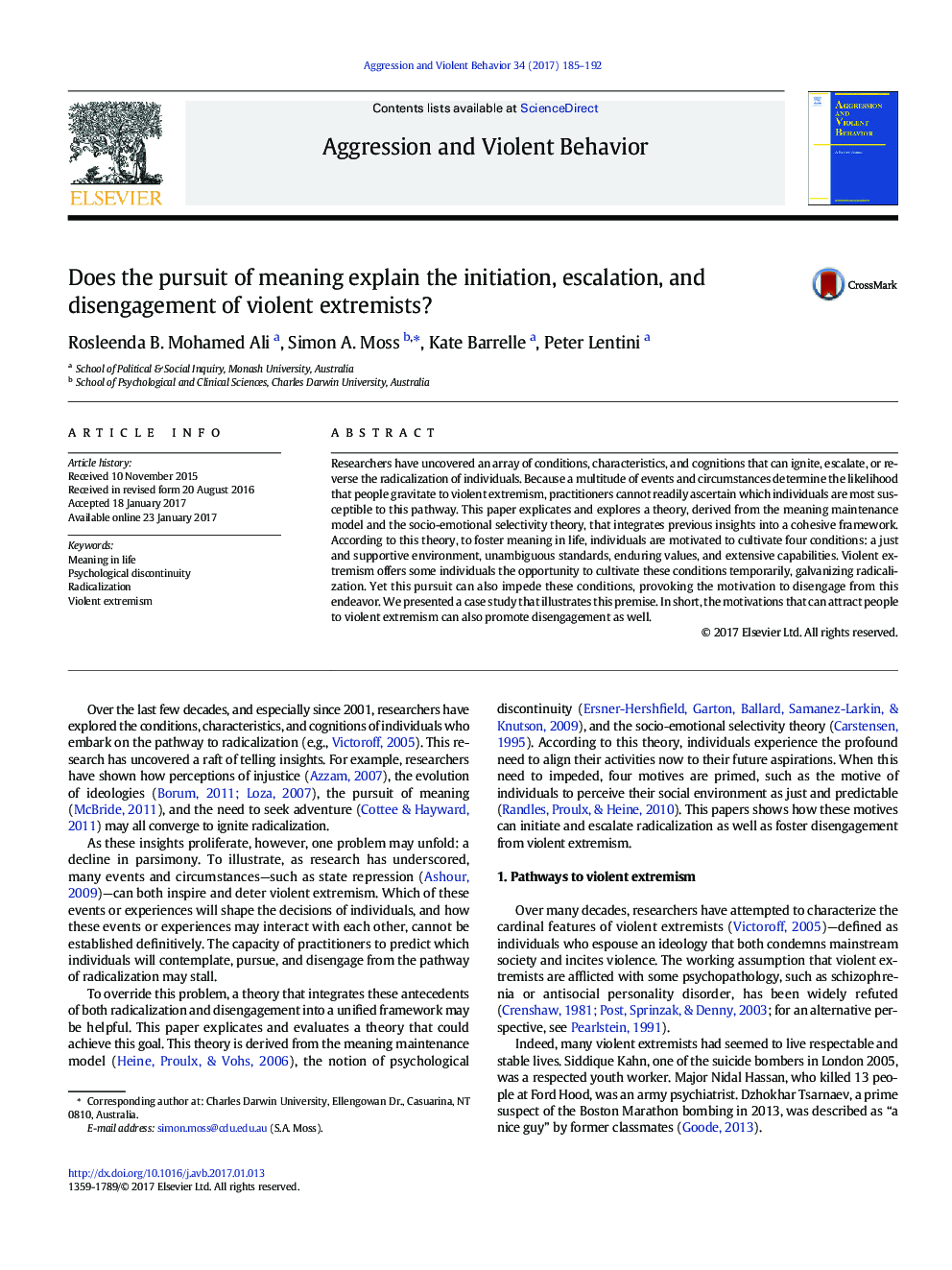| Article ID | Journal | Published Year | Pages | File Type |
|---|---|---|---|---|
| 4760109 | Aggression and Violent Behavior | 2017 | 8 Pages |
â¢After people cultivate four conditions, they experience more meaning in life.â¢These conditions include a just society, unequivocal duties, and enduring values.â¢People embrace violent extremism to achieve these four conditions.â¢Yet violent extremism also impedes these conditions, provoking disengagement.â¢Interviews with three former terrorists confirm this theory.
Researchers have uncovered an array of conditions, characteristics, and cognitions that can ignite, escalate, or reverse the radicalization of individuals. Because a multitude of events and circumstances determine the likelihood that people gravitate to violent extremism, practitioners cannot readily ascertain which individuals are most susceptible to this pathway. This paper explicates and explores a theory, derived from the meaning maintenance model and the socio-emotional selectivity theory, that integrates previous insights into a cohesive framework. According to this theory, to foster meaning in life, individuals are motivated to cultivate four conditions: a just and supportive environment, unambiguous standards, enduring values, and extensive capabilities. Violent extremism offers some individuals the opportunity to cultivate these conditions temporarily, galvanizing radicalization. Yet this pursuit can also impede these conditions, provoking the motivation to disengage from this endeavor. We presented a case study that illustrates this premise. In short, the motivations that can attract people to violent extremism can also promote disengagement as well.
